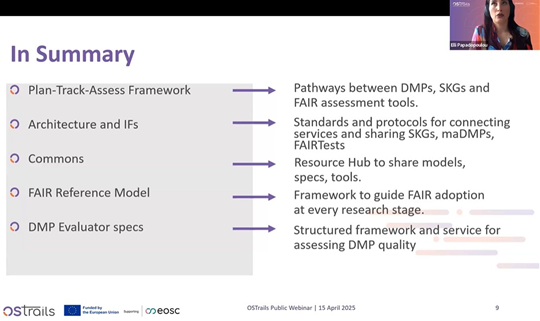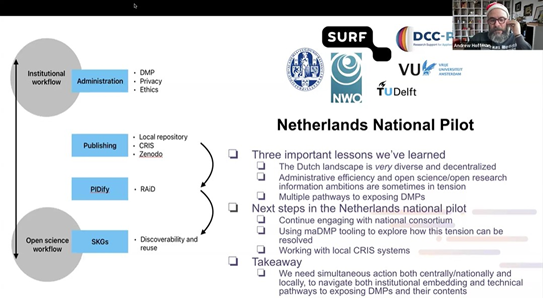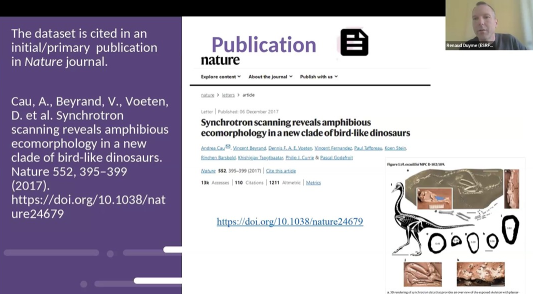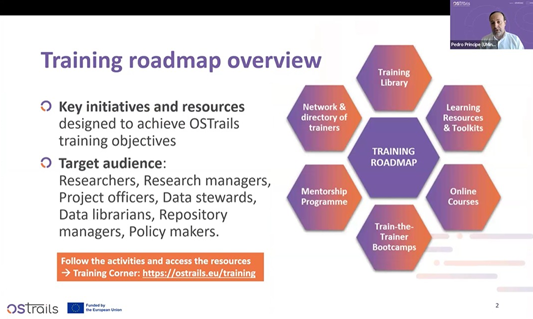Highlights from the OSTrails Hackathons in Athens
On 12 March 2025, OSTrails hosted a series of high-impact hackathons in Athens, held just prior to itsGeneral Assembly. These full-day events convened developers and domain experts from across scientific clusters and research infrastructure communities to collaboratively advance Data Management Planning (DMP) Platforms, Scientific Knowledge Graphs (SKG), and FAIR Assessment Tools, that are vital for effective research data management and sharing.
The hackathon brought together experts and service providers from well-established research data management platforms, bothwithin the consortium and beyond, to build on the Plan-Track-Assess (PTA) Framework (theReferenceArchitecture andPathwayspresented in projectdeliverableD1.4 andD1.1), and test key components in practice.
DMP-IF Hackathon: Laying the Groundwork for a CommonmaDMP API
The DMP Hackathongathereddevelopers and service providers, including platform providers from the consortium and severalfrom outsideEurope. The event focused on advancing machine-actionable Data Management Plans (maDMPs) by fostering collaborationaround two keyobjectives: 1) Maintaining the Research Data AllianceDMPCommon Standard (RDA DMP CS), 2)Initiating work on a CommonmaDMPAPI specification.
As outlined in theOSTrailsArchitecture,theDMP-IFaimsto meet funder and community needsbyextending theRDA DMP CS data model, whileenabling real-time communication between systems through the introduction of anewApplication Profile Interfaces (APIs).Thediscussionscentredaround improving date handling, identifier usage, and specification governance—resulting in concrete proposals to besubmitted to theRDA Working Group for inclusion in the standard.In parallel, participants reviewed existing APIs and user requirements, drafted a shared API designformaDMPs, and agreed to continue development through close collaboration within thenewly establishedRDA group.
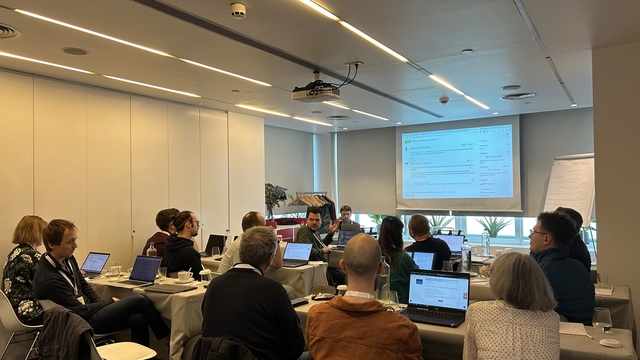
Developers exchanging ideas at the DMP IF Hackathon
SKG-IF Hackathon: Advancing Interoperability for Scientific Knowledge Graphs
The SKG-IF Hackathon brought together providers of SKG services and infrastructure onboarded in OSTrails to advance interoperability through hands-on experimentation with the SKG-IF OpenAPI specification and metadata model. The session focused on mapping institutional data to the SKG-IF model and exploring its capacity to accommodate diverse research outputs.
Building on the RDA SKG-IF core data model, OSTrails aims to enhance the framework with a flexible extension mechanism to support domain-specific entities—such as instruments and provenance information, while supporting seamless discovery and integration of graph data with the introduction of a new API. The hackathon focused on validating the SKG-IF model through real-world data mapping and collected detailed feedback via the GitHub issue tracker. Major discussion topics were: 1) Gaps in the SKG-IF data model, such as missing fields, insufficient documentation, and the need for greater extensibility; 2) Issues in the OpenAPI specification, including unclear documentation and undefined field requirements.
The model’s scope was also extended to support a broader range of research products by introducing new product types aligned with community needs: literature, research data, and research software. Hackathon contributions were fed directly into the roadmap of the RDA SKG-IF Working Group, supporting the finalisation of the specification.
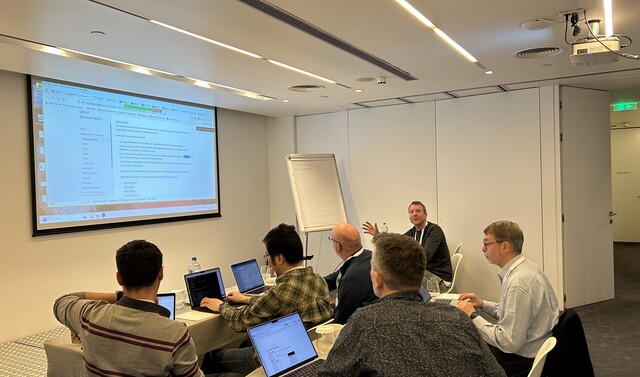
Hands-on collaboration during the SKG-IF Hackathon
FAIR-IF Hackathon: Making FAIR Assessments More Interoperable
Running in parallel, the FAIR-IF Hackathon brought together developers from various FAIR-related tools, including thoseonboarded in the project as well as several external platforms. The focus was on aligning assessment services and harmonising API formats to improve interoperability across FAIR tools.
In the first part of the hackathon, participants discussed howkey components of the FAIR-IF, such as benchmarks, could help ensure consistent outcomes with minimal or no manual curation. They also emphasised the need to harmonise APIs through standards such as OpenAPI and highlighted transparency and record provenance as essential for trust and reproducibility.
The second part of the hackathon was hands-on, building on the earlier discussions. It focused on API functionality and tool alignment, showing that the proposed common API structure provided a solid foundation for implementation, integration, and mapping across existing tools—advancing interoperability within the FAIR-IF ecosystem.
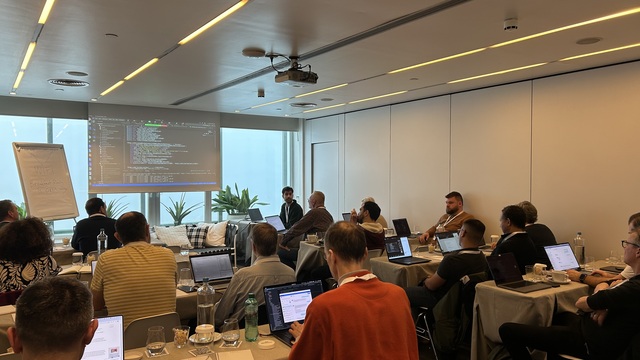 Insights from the FAIR-IF Hackathon
Insights from the FAIR-IF Hackathon
Looking Ahead
These hackathons not only advanced technical developments but also reaffirmed OSTrails' commitment to open collaboration across diverse research domains and settings. By bringing together experts from across Europe and beyond, OSTrails is setting the stage for truly interoperable research infrastructures.
Learn more about the OSTrails Architecture and Interoperability Frameworks by exploring ourblog, reading thedocumentation, and watching theInteroperability Webinar Series
Stay tuned for upcoming events and learn more about future OSTrails hackathons by visiting our page:OSTrails Hackathons.
-Written by Tassos Stavropoulos (OpenAIRE)

